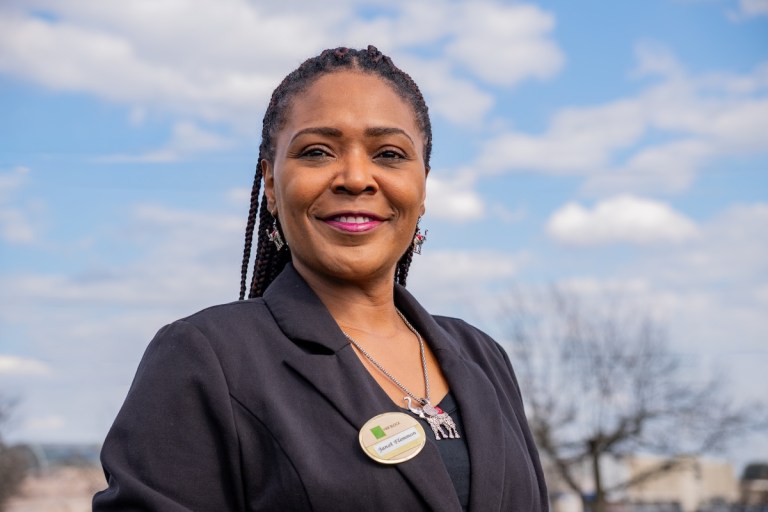Reviewed by: Sarah Gronberg
This local survived Long COVID—here’s why his story is important
Reading time: 5 minutes
Sponsored

You’ve heard of Long COVID, but what is it really like? In an effort to bring awareness to the importance of vaccination, UAB and Acclinate teamed up for a campaign called Voices to Vaxx to share real COVID stories from the community. Ricky Crenshaw, an Alabama native and Long COVID survivor, chose to be included. Here’s why.
Ricky’s Long COVID story

Meet Ricky Crenshaw—a 62-year-old Alabama native who’s retired from construction and the ministry, who’s married and has two sons and a granddaughter, and who always loved riding horses and motorcycles.
Ricky’s once-active life came to an abrupt pause when he was diagnosed with Long COVID in February 2022.
While visiting his son, daughter-in-law and granddaughter in Pennsylvania, Ricky became increasingly ill.
An ambulance rushed Ricky, with an oxygen level of 23%, to the hospital. After finding out that he had the Delta strain of COVID, they called Ricky’s wife Stacy and told her her husband might not make it.
This led to the biggest battle of his life. Ricky spent 35 days in a medically-induced coma in the critical care unit. When his oxygen levels were deemed safe, he was moved to a step-down recovery unit for 30 days. He was in the hospital for a total of 82 days before being allowed to finally return home to Alabama.
But this was only the beginning. Shortly after returning home, Ricky began experiencing major health problems. His ability to breathe began to rapidly decline and his short-term memory became nearly nonexistent due to a COVID brain fog. He also lost his ability to walk.
“When I’m talking, I may just go blank because I don’t remember. It’s as if my brain shuts down. It’s not that I don’t remember. [My brain] just stops working.”
Ricky Crenshaw
Ricky also experienced:
- Loss of taste and smell
- Inability to eat
- Numbness in his right cheek
- A tracheotomy that left him with vocal cord paralysis
“This is a bad disease. It’s just a very, very bad disease. As a former Marine, I’ve dealt with a lot of things. I’ve been shot, stabbed…Nothing has done to me what COVID has done.”
Ricky Crenshaw
Gaining hope through UAB-Acclinate partnership through CEAL

COVID-19’s disproportionate impact on Birmingham’s Black community—along with general distrust in the US healthcare system—left many with a tough decision: to vaccinate or not to vaccinate.
This is where the UAB Minority Health & Health Equity Research Center (MHERC) and Birmingham-based healthcare technology company Acclinate stepped in, with a goal of building affective (emotional) trust with the Black community and other communities of color so they can make informed decisions about their health.
Acclinate uses its digital platform called NOWINCLUDED to provide people of color with an opportunity to:
- Access health resources
- Share personal health stories
- Learn about clinical research
In addition to the partnership with MHERC, Acclinate also partnered with the National Institutes of Health (NIH) to make an even bigger impact. Through the NIH Community Engagement Alliance (CEAL), Acclinate and UAB became a part of teams from across the US that share accurate information about COVID-19 and ways to manage the disease.
In February 2023, Ricky heard about a focus group being hosted by UAB and decided to get involved by sharing his COVID story and helping bring awareness to the importance of vaccination, especially to those in Birmingham’s underserved communities.
“I was glad to be a part of it… I feel that there needs to be more people aware of Long COVID, and this focus group puts a person in that position to experience it, to hear and exchange ideas and viewpoints.”
Ricky Crenshaw
Watch Ricky’s full Voices to Vaxx story.
Long COVID tips

Today, Ricky continues to struggle with Long COVID symptoms, but focusing on things like having a healthy diet and surrounding himself with family and prayer helps. We asked Ricky if he had any tips for others. Here’s what he said:
- If you have COVID symptoms, don’t panic. First, see your doctor and get as much information as you can.
- Utilize the internet to find out information about Long COVID. This will help you figure out ways to address symptoms and hopefully eliminate them.
- Don’t wait for [symptoms] to get so bad they can’t be treated.
- Talk to your doctor, share information with your family and friends that may have long COVID or who have never had COVID at all. The more they know, the more informed they’ll be and the better chance they’ll have of addressing it.
Follow NOWINCLUDED on Instagram to stay up to date on events and resources for your health and follow Acclinate on LinkedIn to learn more about their work to bring health equity through inclusive research.
Sponsored by:




